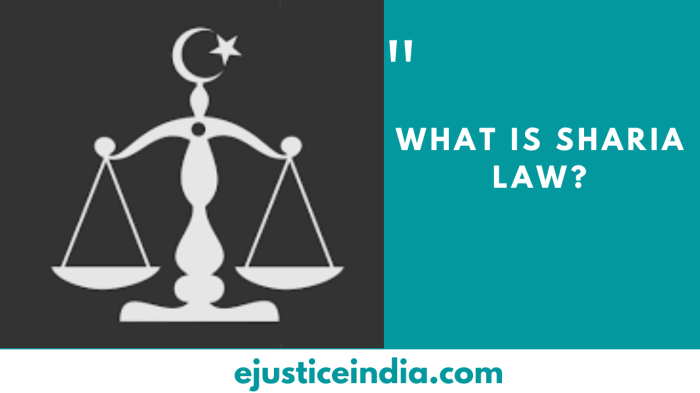
What are Islamic laws? This question often sparks curiosity and sometimes even misconceptions. Islamic law, or Sharia, is a comprehensive system of rules and guidelines derived from the Quran and Sunnah, the primary sources of Islamic teachings. It encompasses various aspects of life, from personal conduct to societal governance, aiming to create a just and harmonious society.
The beauty of Islamic law lies in its adaptability. It’s not a rigid set of rules but rather a dynamic system that evolves with the changing needs of society while adhering to its core principles. Understanding Islamic law requires delving into its sources, exploring its key areas, and appreciating its underlying principles. This journey unveils a rich tapestry of knowledge, revealing the wisdom and depth of Islamic thought.
The Sources of Islamic Law

Islamic law, also known as Sharia, is a comprehensive legal system that governs various aspects of Muslim life, from personal conduct to social interactions and economic transactions. The foundation of Islamic law lies in its primary and secondary sources, which provide the framework for understanding and applying its principles.
The Quran
The Quran, the holy book of Islam, is the primary source of Islamic law. It is believed to be the literal word of God, revealed to the Prophet Muhammad (peace be upon him) through the Angel Gabriel. The Quran contains numerous verses that address legal matters, covering topics such as inheritance, marriage, divorce, crime, and social justice.
- For example, verses like Surah 4:176 and 2:228 provide guidance on inheritance laws, while Surah 2:223 and 2:230 Artikel the conditions for marriage and divorce, respectively.
The Sunnah
The Sunnah, which encompasses the sayings, actions, and silent approvals of the Prophet Muhammad (peace be upon him), serves as the second primary source of Islamic law. It provides practical examples and interpretations of the Quranic verses, clarifying their application in different situations.
- For instance, the Prophet Muhammad (peace be upon him) demonstrated how to perform daily prayers, fast during Ramadan, and conduct business transactions, providing a model for Muslims to follow.
Ijma
Ijma, the consensus of the Muslim scholars, is a secondary source of Islamic law. It refers to the agreement reached by qualified Islamic scholars on a particular legal issue. Ijma is considered binding on all Muslims, as it represents the collective wisdom of the community.
- For example, the early Muslim scholars reached a consensus on the prohibition of interest (riba) in financial transactions, based on their understanding of Quranic verses and the Prophet’s teachings.
Qiyas
Qiyas, analogical reasoning, is another secondary source of Islamic law. It involves applying a ruling from a known case (the “original case”) to a new case (the “analogous case”) that shares similar essential characteristics.
- For example, if the Quran prohibits the consumption of alcohol, Qiyas can be used to extend the prohibition to other intoxicating substances based on their similar effects.
Role of Islamic Scholars
Islamic scholars, known as Ulama, play a crucial role in interpreting and applying Islamic law. They are trained in Islamic jurisprudence and possess a deep understanding of the Quran, Sunnah, and other sources of Islamic law.
- Ulama engage in scholarly debate, research, and analysis to reach conclusions on complex legal issues.
- They provide guidance to Muslims on various matters, from personal conduct to legal disputes.
Key Areas of Islamic Law
Islamic law, also known as Sharia, encompasses a wide range of legal principles and guidelines that govern various aspects of Muslim life. It is derived from the Quran, the Sunnah (the teachings and practices of Prophet Muhammad), and other Islamic sources. Islamic law is not a static system; it is dynamic and adaptable to changing times and circumstances.
Family Law
Family law in Islam is a significant area that regulates the personal and social relationships within a Muslim community. It covers matters such as marriage, divorce, inheritance, and child custody.
| Area of Law | Description | Examples | Sources |
|---|---|---|---|
| Marriage | Islamic marriage is a contract between a man and a woman, based on mutual consent and witnessed by two individuals. It involves the exchange of vows and the payment of a dowry (mahr) to the bride. | A Muslim man and woman agree to marry, with a contract signed and witnessed by two individuals. The groom pays a dowry to the bride. | Quran (Chapter 4, Verse 21), Sunnah, Islamic jurisprudence |
| Divorce | Divorce in Islam is permitted but discouraged. It should be a last resort and requires specific procedures to be followed, including reconciliation attempts and a period of waiting (iddah) for the woman. | A couple decides to divorce after exhausting all options for reconciliation. The wife observes a waiting period before remarrying. | Quran (Chapter 2, Verse 229), Sunnah, Islamic jurisprudence |
| Inheritance | Islamic inheritance laws are based on predetermined shares for different relatives, ensuring fairness and social justice. | A Muslim’s estate is divided among their spouse, children, parents, and other relatives according to specific shares Artikeld in Islamic law. | Quran (Chapter 4, Verses 11-12), Sunnah, Islamic jurisprudence |
Financial Law
Financial law in Islam aims to create a just and equitable economic system, prohibiting interest-based transactions (riba) and promoting ethical business practices. It includes concepts such as Zakat, trade, and finance.
| Area of Law | Description | Examples | Sources |
|---|---|---|---|
| Zakat | Zakat is an obligatory form of charity, calculated as a percentage of a Muslim’s wealth, distributed to the needy and deserving individuals. | A Muslim pays a portion of their wealth as Zakat to support those in need, such as the poor, orphans, and travelers. | Quran (Chapter 2, Verse 43), Sunnah, Islamic jurisprudence |
| Trade | Islamic trade principles emphasize fairness, transparency, and honesty in transactions. Practices like usury, gambling, and speculation are prohibited. | A Muslim businessman engages in ethical business practices, ensuring fair pricing, accurate accounting, and honest dealings with customers. | Quran (Chapter 2, Verse 275), Sunnah, Islamic jurisprudence |
| Finance | Islamic finance prohibits interest-based loans and investments. Instead, it promotes alternative financing methods, such as profit-sharing, equity-based financing, and risk-sharing. | A Muslim invests in an Islamic bank that operates based on profit-sharing principles, avoiding interest-bearing loans and investments. | Quran (Chapter 2, Verse 278), Sunnah, Islamic jurisprudence |
Criminal Law
Islamic criminal law focuses on deterring crime and protecting individuals and society. It includes two main categories: Hudood and Qisas.
| Area of Law | Description | Examples | Sources |
|---|---|---|---|
| Hudood | Hudood crimes are offenses against God, such as adultery, theft, and false accusations. They carry fixed punishments prescribed in Islamic law. | A Muslim who commits adultery may face a specific punishment, such as stoning or flogging, according to Islamic law. | Quran (Chapter 4, Verse 15), Sunnah, Islamic jurisprudence |
| Qisas | Qisas refers to retribution, where the punishment for a crime is equal to the harm inflicted. It applies to crimes like murder, assault, and injury. | A Muslim who commits murder may be subject to the death penalty, or the victim’s family may choose to forgive the offender or seek compensation. | Quran (Chapter 2, Verse 178), Sunnah, Islamic jurisprudence |
Personal Law
Personal law in Islam deals with individual conduct and daily practices, guiding Muslims in their personal lives. It covers areas like dress, food, and prayer.
| Area of Law | Description | Examples | Sources |
|---|---|---|---|
| Dress | Islamic dress code emphasizes modesty and respect for both men and women. It encourages covering the body appropriately, with variations depending on cultural contexts. | Muslim women may choose to wear hijab (headscarf) and abaya (long robe), while Muslim men may wear long pants and shirts that cover their body. | Quran (Chapter 24, Verse 31), Sunnah, Islamic jurisprudence |
| Food | Halal dietary laws in Islam specify permissible and prohibited foods. Haram (forbidden) foods include pork, blood, and alcohol. | Muslims consume halal meat that has been slaughtered according to Islamic rituals and avoid consuming pork or alcohol. | Quran (Chapter 2, Verse 173), Sunnah, Islamic jurisprudence |
| Prayer | Salah (prayer) is a pillar of Islam, performed five times a day at specific times. It involves specific postures and recitations. | Muslims perform five daily prayers at dawn, noon, afternoon, sunset, and night, following specific rituals and recitations. | Quran (Chapter 2, Verse 153), Sunnah, Islamic jurisprudence |
Principles of Islamic Law: What Are Islamic Laws

Islamic law is not merely a set of rigid rules but is built upon a foundation of principles that guide its application and interpretation. These principles ensure flexibility and adaptability to evolving societal needs while remaining true to the core values of Islam.
Maqasid al-Sharia (Objectives of Islamic Law)
The concept of Maqasid al-Sharia emphasizes the ultimate goals and purposes of Islamic law. It recognizes that the divine law aims to protect and promote human well-being in all its aspects. These objectives are categorized into five essential categories:
- Preservation of Religion (Hifz al-Din): This encompasses protecting the faith, promoting religious knowledge, and safeguarding the integrity of Islamic beliefs and practices.
- Preservation of Life (Hifz al-Nafs): This principle prohibits unlawful killing, promotes healthcare, and emphasizes the sanctity of human life.
- Preservation of Intellect (Hifz al-‘Aql): This principle protects mental health, prohibits intoxication, and encourages intellectual pursuits.
- Preservation of Property (Hifz al-Mal): This principle safeguards individual and collective wealth, promotes economic justice, and ensures fair transactions.
- Preservation of Lineage (Hifz al-Nasl): This principle protects the family structure, encourages marriage, and prohibits adultery and fornication.
These objectives serve as guiding principles for Islamic jurists when interpreting and applying Islamic law to specific situations. The principle of Maqasid al-Sharia ensures that legal rulings are not merely based on literal interpretations of texts but also consider the broader societal goals and the well-being of individuals.
Maslaha (Public Interest)
Maslaha refers to the concept of public interest or benefit. It is a crucial element in Islamic legal reasoning, allowing for flexibility and adaptation to changing circumstances.
“The principle of Maslaha is based on the premise that Islamic law aims to promote the well-being of society and its individuals.”
Jurists consider the potential benefits and harms of a particular action or ruling, weighing them against the principles of Maqasid al-Sharia. This approach allows for nuanced legal interpretations that respond to the specific needs and challenges of a given time and place.
Ijtihad (Independent Reasoning)
Ijtihad is the process of independent reasoning and interpretation by qualified scholars to arrive at legal rulings in situations not explicitly addressed in the Quran or Sunnah.
“Ijtihad is a fundamental principle in Islamic jurisprudence, recognizing the dynamic nature of human affairs and the need for ongoing interpretation of Islamic law.”
This principle allows for the application of Islamic law to new challenges and evolving societal contexts. It is based on a deep understanding of Islamic sources, rigorous methodologies, and the scholar’s commitment to seeking the best interests of the community.
The Evolution of Islamic Law
Islamic law, also known as Sharia, has evolved over centuries, shaped by diverse historical, social, and intellectual influences. Its development reflects a dynamic interplay between the Quran, Sunnah, and the reasoning of Muslim scholars. This evolution can be traced through key historical developments, the emergence of different schools of jurisprudence, and the ongoing engagement with contemporary challenges.
A Timeline of Key Developments
The evolution of Islamic law can be understood through a chronological examination of significant events and figures:
- Early Period (7th-8th Centuries): This period witnessed the foundation of Islamic law, with the Quran and Sunnah serving as the primary sources. The Prophet Muhammad’s pronouncements and practices provided the initial framework for legal rulings. Key figures include the Prophet Muhammad himself, his companions, and early jurists like Abdullah ibn Abbas.
- Classical Period (8th-13th Centuries): This era saw the rise of Islamic jurisprudence, with the development of various schools of thought (Madhahib). Scholars like Imam Abu Hanifa, Imam Malik, Imam Shafi’i, and Imam Ahmad ibn Hanbal formulated legal methodologies and established influential schools of jurisprudence. This period witnessed the codification of Islamic law in various legal treatises (Fiqh books).
- Post-Classical Period (13th-19th Centuries): During this period, Islamic law continued to evolve, with scholars engaging in legal debates and interpretations. The Ottoman Empire’s legal system played a significant role in shaping the application of Islamic law across its vast territory. The rise of colonialism and the influence of Western legal systems also impacted the development of Islamic law in this period.
- Modern Period (20th-21st Centuries): The 20th century witnessed a renewed interest in Islamic law, with scholars engaging in contemporary interpretations and addressing modern challenges. This period saw the emergence of movements like Islamic revivalism and the development of legal institutions and organizations dedicated to the study and application of Islamic law in modern contexts.
Comparison of Schools of Islamic Jurisprudence
The classical period saw the emergence of four main schools of Islamic jurisprudence (Madhahib): Hanafi, Maliki, Shafi’i, and Hanbali. Each school developed its own methodology for interpreting Islamic law, leading to variations in legal rulings on specific issues.
- Hanafi School: Founded by Imam Abu Hanifa, this school emphasizes analogical reasoning (Qiyas) and the use of scholarly consensus (Ijma’).
- Maliki School: Founded by Imam Malik, this school emphasizes the importance of local custom (ʿUrūf) and the practice of the people of Medina.
- Shafi’i School: Founded by Imam Shafi’i, this school emphasizes a more rigorous approach to reasoning and prioritizes the use of the Quran and Sunnah.
- Hanbali School: Founded by Imam Ahmad ibn Hanbal, this school emphasizes a strict adherence to the Quran and Sunnah and relies heavily on the hadith literature.
“The four Imams were all great scholars who contributed significantly to the development of Islamic law. Their differences in approach and methodology reflect the dynamic nature of Islamic jurisprudence.”
The Impact of Modern Challenges, What are islamic laws
The 20th and 21st centuries have presented Islamic law with new challenges, such as globalization, technological advancements, and social changes. These challenges have prompted contemporary scholars to engage in reinterpretations and reinterpretations of Islamic law to address modern realities.
- Contemporary Interpretations: Modern scholars have developed various approaches to interpreting Islamic law in the context of modern challenges. Some emphasize the need for a flexible and contextual approach, while others advocate for a more traditional approach grounded in classical sources.
- Legal Pluralism: The rise of legal pluralism has raised questions about the application of Islamic law in multi-cultural societies. Scholars have debated the extent to which Islamic law can coexist with other legal systems and the role of state institutions in regulating religious law.
- Social Issues: Modern social issues, such as women’s rights, family law, and financial transactions, have presented significant challenges to Islamic law. Scholars have engaged in ongoing debates about the application of Islamic principles to these issues in contemporary contexts.
Islamic Law in the Modern World

Islamic law, also known as Sharia, continues to be a significant force in the lives of millions around the world. While its origins lie in the 7th century, its relevance and application in the contemporary world are undeniable. This section will delve into the multifaceted ways Islamic law interacts with modern society, exploring its application in governance, personal life, and international relations, as well as the ongoing debates and controversies surrounding its interpretation and implementation.
Application of Islamic Law in Contemporary Contexts
The application of Islamic law in the modern world is a complex and nuanced issue. It is not a monolithic system, and its interpretation and implementation vary widely across different societies and contexts.
Governance
In some countries, Islamic law serves as the primary legal framework, influencing legislation and judicial decisions. For example, in Saudi Arabia, Islamic law forms the basis of the legal system, with the Quran and Sunnah serving as the primary sources of law. However, even in countries where Islamic law is not the sole legal system, it can still have a significant influence on governance. In many Muslim-majority countries, Islamic law is used to regulate personal status matters such as marriage, divorce, inheritance, and child custody.
Personal Life
Islamic law plays a crucial role in shaping the personal lives of Muslims. It provides guidance on matters such as marriage, divorce, family relationships, dress, dietary practices, and financial transactions. While the application of Islamic law in personal life can vary depending on individual interpretation and cultural context, it remains a source of moral and ethical guidance for many Muslims.
International Relations
Islamic law also has implications for international relations. Issues such as the treatment of prisoners of war, the conduct of warfare, and the regulation of trade are addressed in Islamic legal texts. In recent years, there has been increasing interest in the role of Islamic law in promoting peace and understanding between different cultures and societies.
Debates and Controversies
The interpretation and implementation of Islamic law in the modern world is a subject of ongoing debate and controversy. Some argue that Islamic law is a timeless and unchanging system that should be applied literally in all contexts. Others believe that Islamic law should be interpreted in light of modern realities and that its application should be flexible enough to address the challenges of the contemporary world.
Interpretation of Islamic Law
One of the key debates surrounding Islamic law concerns its interpretation. Traditionalists argue that the Quran and Sunnah provide clear and unambiguous guidance on all matters of life, and that any deviation from these texts is unacceptable. Reformists, on the other hand, argue that Islamic law should be interpreted in light of modern circumstances and that the principles of Islamic jurisprudence allow for flexibility and adaptation.
Implementation of Islamic Law
Another major area of controversy is the implementation of Islamic law. Some argue that Islamic law should be applied in all aspects of life, including the political, economic, and social spheres. Others believe that Islamic law should be confined to personal status matters and that the state should not impose its religious beliefs on its citizens.
Examples of the Application of Islamic Law
The following table illustrates examples of how Islamic law is applied in different societies:
| Society | Area of Application | Example |
|---|---|---|
| Saudi Arabia | Criminal Law | Punishment for theft, adultery, and blasphemy are based on Islamic law. |
| Indonesia | Personal Status Law | Marriage, divorce, and inheritance are regulated by Islamic law for Muslims. |
| United Kingdom | Family Law | Islamic courts can adjudicate disputes related to marriage, divorce, and child custody for Muslims. |
Final Wrap-Up
From the foundational principles of the Quran and Sunnah to the practical application of Islamic law in modern life, this exploration has shed light on the multifaceted nature of this intricate system. While debates and interpretations may exist, Islamic law continues to serve as a guiding force for millions worldwide, shaping their personal lives, communities, and even global interactions. As we navigate an ever-evolving world, understanding the essence of Islamic law becomes increasingly important, fostering dialogue, respect, and a deeper appreciation for the diverse tapestry of human beliefs and practices.
FAQs
Is Islamic law applicable to all Muslims?
While Islamic law is a guiding principle for all Muslims, its specific interpretations and applications can vary depending on individual scholars, schools of thought, and regional contexts.
How does Islamic law differ from other legal systems?
Islamic law is distinct from secular legal systems in its foundation, which is rooted in religious texts and principles. It emphasizes divine guidance and ethical considerations alongside legal rulings.
What are the challenges faced by Islamic law in the modern world?
Modern challenges include reconciling traditional interpretations with contemporary realities, addressing issues related to globalization and cultural diversity, and ensuring the equitable application of Islamic law in diverse societies.


